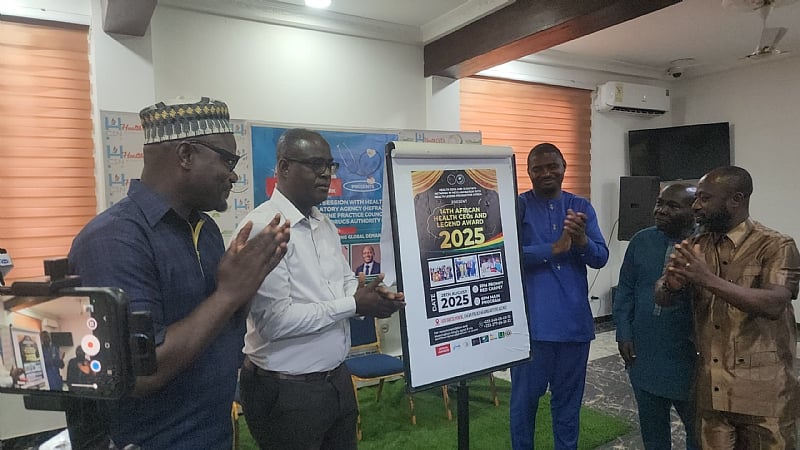The Ghanaian health sector convened in Accra on May 22, 2025, for a crucial forum aimed at bolstering regulatory frameworks and aligning them with international standards. Organized by the Health CEOs and Scientists Network, the forum, themed “Raising Standards in Meeting Global Demands,” brought together key regulatory bodies like the Food and Drugs Authority (FDA), the Health Facilities Regulatory Agency (HEFRA), and the Traditional Medicine Practice Council (TMPC), alongside healthcare professionals, to address regulatory challenges and share best practices for achieving excellence and innovation in healthcare delivery. The forum emphasized the vital role of collaboration in meeting the evolving expectations of the global health community.
A central theme of the forum was the FDA’s commitment to product safety as a non-negotiable prerequisite for registration. Samuel Asante Boateng, Director for Drugs and Herbal Medicine Registration at the FDA, emphasized that ensuring product safety is paramount to avoid potential repercussions and maintain public trust. He highlighted the FDA’s efforts in elevating its internal standards to match international benchmarks, urging stakeholders to rise to these standards to ensure alignment with global best practices. This focus on safety underscores a commitment to protecting public health and maintaining the integrity of the Ghanaian healthcare system.
Kwame Dzikunu, President of the Health CEOs and Scientists Network, explained that the forum was designed to facilitate communication and understanding between practitioners and regulators. This dialogue aims to identify challenges faced by both parties and collaboratively develop solutions to improve healthcare practice across the country. Dzikunu also announced the upcoming 14th edition of the Health CEOs and Legends Awards, scheduled for August 28, 2025, as a platform to recognize and celebrate outstanding contributions within the health sector. This recognition serves as an incentive for continuous improvement and innovation within the healthcare ecosystem.
HEFRA’s commitment to expanding its regulatory oversight to encompass non-traditional and emerging health service providers was another key takeaway from the forum. Dr. Agyemang Badu, Director of Compliance and Enforcement at HEFRA, explained that this expansion, targeting areas such as telemedicine centers, home help services, and medical spas, stems from the realization that these services, despite their non-traditional nature, directly impact public health and therefore require regulation. This proactive approach demonstrates HEFRA’s commitment to adapting to the changing landscape of healthcare delivery and ensuring comprehensive regulatory coverage. Furthermore, Dr. Badu’s announcement of intensified enforcement action against unlicensed facilities signals a stronger regulatory stance, aimed at ensuring compliance and protecting the public from unqualified practitioners.
The Traditional Medicine Practice Council (TMPC) outlined its strategic initiatives to enhance access and regulatory effectiveness within the traditional medicine sector. Dr. Yakubu Yusuf Torbor, Acting Registrar of the TMPC, detailed the council’s aggressive regional expansion plan, designed to improve accessibility for practitioners across the country, simplifying the registration process and enabling better oversight. This decentralization strategy aims to bring regulation closer to practitioners, fostering greater compliance and promoting the safe and effective practice of traditional medicine. Additionally, the TMPC’s collaboration with law enforcement and other state institutions signals a determined effort to combat the issue of unlicensed traditional medicine practitioners, ensuring that only qualified and registered practitioners operate within the legal framework.
The Accra forum concluded with a renewed sense of commitment and urgency among participants towards upholding high standards in healthcare delivery. The stakeholders recognized the critical role of transparent regulation, inclusive dialogue, and shared responsibility among both public and private players in achieving meaningful progress. The focus on aligning with international standards, expanding regulatory oversight to cover emerging healthcare models, and improving access to registration for traditional medicine practitioners demonstrates a proactive and comprehensive approach to strengthening the Ghanaian healthcare system and ultimately, improving health outcomes for the population. The forum served as a vital platform for collaboration, knowledge sharing, and the establishment of a shared vision for a more robust and internationally recognized healthcare landscape in Ghana.


